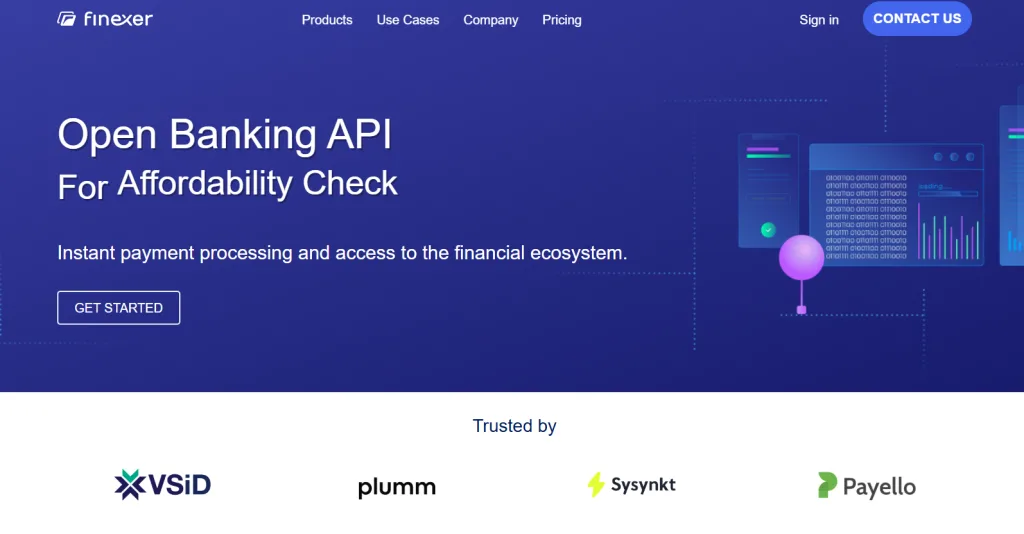For mid-sized accounting firms in the UK, accounting compliance is not just a box-ticking exercise; it’s a core part of protecting clients and avoiding penalties from regulators like HMRC and the FCA. With stricter rules around client money, Making Tax Digital (MTD), and audit-ready records, the pressure is growing on firms to get compliance right the first time.
The challenge is that many firms are still tied to outdated processes: requesting PDF bank statements, reconciling data manually, or chasing clients for missing transactions. Not only does this eat into billable hours, but it also introduces compliance risks if records aren’t complete or verifiable.
This is where Open Banking providers step in. By connecting directly to client bank accounts (with consent), accountants can instantly access verified transactions, categorise income, and generate records that stand up to audits. But not all Open Banking platforms are built with accounting compliance in mind. Some, like Yapily, have strong fintech use cases, while others, like Finexer, are designed specifically around the workflows and compliance needs of UK accounting firms.
In this blog, we’ll compare Finexer vs Yapily from the perspective of accounting compliance and explore what mid-sized firms should consider before choosing a provider.
Understanding the Needs of Mid-Sized Accounting Firms
Mid-sized firms occupy a unique space in the UK accounting landscape. They often have larger client volumes than small practices, but don’t have the in-house resources of Big Four firms. This means efficiency and compliance go hand in hand; every hour saved on admin can be redirected toward advisory work, while every compliance misstep can damage reputation and client trust.
Here are the core requirements mid-sized firms look for when adopting Open Banking for compliance:
- FCA Authorisation – Firms need confidence that their provider is fully authorised for both Account Information Services (AIS) and Payment Initiation Services (PIS). This ensures client data is handled under UK regulatory standards.
- Comprehensive UK Bank Coverage – Mid-sized firms can’t afford gaps in client data. Coverage of major UK banks, from high street names like Barclays and Lloyds to challengers like Monzo and Starling, is essential.
- Integration with Accounting Systems – Mid-sized firms typically rely on cloud software like Xero, QuickBooks, or Sage. Providers that deliver data in standardised formats and support automated syncing reduce manual errors and improve audit readiness.
- Compliance Features – Features like categorised transactions, MTD compliance support, and audit trails make a huge difference in day-to-day workflows.
- Speed of Deployment – Unlike larger firms, mid-sized practices often don’t have months to spare for system integration. A provider that can go live 2–3x faster gives firms a practical advantage.
In short, the provider choice is not just about connectivity; it’s about whether the API is truly built for compliance-first accounting use cases.
Yapily

Yapily is an established Open Banking provider offering API-based connectivity across the UK and Europe. The platform is FCA-authorised and widely used by fintechs, banks, and enterprises to enable payments and access account information.
For accounting firms, Yapily can provide secure access to transaction data and support for client verification. However, its broader focus on fintech and payments means firms may need to adapt the API for specific accounting compliance requirements such as Making Tax Digital (MTD) submissions or detailed audit reporting.
Yapily’s strength lies in its developer-friendly infrastructure and European reach, making it a well-recognised option in the Open Banking ecosystem.
Yapily vs Finexer for Mid-Sized Accounting firms
| Criteria | Finexer | Yapily |
|---|---|---|
| FCA Authorisation | Yes — fully authorised for AIS & PIS under FCA; tailored to accounting compliance needs. | Yes — authorised, but EU-first focus with fewer UK accounting-specific features. |
| UK Bank Coverage | Extensive — ~99% coverage across high-street and digital banks. | Partial — covers major banks, but not full UK coverage (potential data gaps). |
| Accounting Workflow Fit | Strong — built for accounting workflows; MTD-ready, audit trails, categorised data. | Limited — better for fintech/payments; fewer accounting compliance features. |
| Deployment Speed | Fast — 2–3× quicker with 3–5 weeks of hands-on onboarding support. | Moderate — developer-heavy integrations; slower for mid-sized firms. |
| Support for Mid-Sized Firms | Optimised — designed for UK accountants handling compliance and audits efficiently. | Less suited — aligns more with fintechs; accountants may need more manual setup. |
Can Yapily support Making Tax Digital (MTD) compliance?
Yapily does not provide dedicated MTD-ready features out of the box. Mid-sized firms may need additional tools or manual work to align with HMRC standards. Finexer, on the other hand, supports MTD-compliant transaction data as part of its design for accounting workflows.
How fast can mid-sized firms deploy Finexer compared to Yapily?
Finexer deploys around 2–3x faster than the market average, with 3–5 weeks of hands-on onboarding support. Yapily requires more in-house technical resources, which can extend the deployment timeline for accounting firms.
Finexer

Unlike global-first providers, Finexer is purpose-built for UK accounting firms. Every aspect of its platform is designed to support compliance, reduce manual admin, and help firms meet regulator expectations with less friction.
FCA Authorisation & Compliance Support
Finexer is fully authorised by the Financial Conduct Authority (FCA) for both Account Information Services (AIS) and Payment Initiation Services (PIS). For accountants, this means client data is handled under UK regulatory standards, giving firms confidence when preparing records for HMRC or external audits.
UK Bank Coverage
With connectivity to 99% of UK banks from traditional high street institutions like Barclays, Lloyds, and HSBC to challenger banks such as Starling and Monzo, Finexer eliminates the data gaps that can compromise compliance checks. Firms can access verified transaction data across their entire client base in real time.
Accounting Workflow Fit
Where many providers lean toward fintech or payments use cases, Finexer is designed with accounting compliance at its core. The platform delivers categorised transaction data that supports MTD requirements, making it easier for firms to keep digital records aligned with HMRC standards. Audit trails are automatically generated, removing the need for manual cross-checking.
Deployment & Support
Mid-sized firms don’t have time to manage lengthy integrations. Finexer deploys 2–3x faster than the market average, and firms receive hands-on onboarding support for 3–5 weeks to ensure smooth setup. This allows teams to start using the API quickly without being slowed down by technical bottlenecks.
Why Mid-Sized Firms Choose Finexer
For firms balancing tight deadlines, regulatory scrutiny, and high client expectations, Finexer stands out because it’s not just another Open Banking API; it’s a compliance-focused partner that helps firms save time, reduce risk, and meet audit requirements without added complexity.
Get Started
Connect today and see why businesses trust Finexer for secure, compliant, and tailored open banking solutions.
Try NowWhich Open Banking Provider is Best for UK Accounting Compliance?
When it comes to choosing between Finexer and Yapily for accounting compliance, the decision depends on what mid-sized firms prioritise.
- Finexer is built with UK accountants in mind. It combines FCA authorisation, 99% UK bank coverage, MTD-ready categorised data, and audit trail generation. For firms handling client transactions under strict compliance rules, this makes Finexer the stronger, accounting-focused option.
- Yapily offers powerful developer tools and fintech-oriented infrastructure. While it is FCA authorised, its EU-first design means fewer compliance-focused features tailored to UK accountants. Firms may need to invest additional resources to bridge the compliance gap.
For mid-sized firms, the takeaway is clear: if the goal is to meet regulatory obligations, save time on manual reconciliation, and ensure records are audit-ready, Finexer is the provider better aligned with accounting compliance workflows. Yapily remains a strong option for fintech applications but is less suited to the daily compliance demands of accounting practices.
Do both Finexer and Yapily have FCA authorisation?
Yes. Both providers are FCA-authorised for Account Information Services (AIS) and Payment Initiation Services (PIS). However, Finexer is focused on accounting compliance for UK firms, while Yapily is more developer- and fintech-oriented.
Why is UK bank coverage important for accounting compliance?
Mid-sized firms need complete client transaction data to meet HMRC and audit requirements. Finexer’s 99% UK bank coverage ensures that accountants can maintain accurate, compliant records without gaps. Yapily, while strong on major banks, does not yet match this level of UK-specific coverage.
Which provider is better for accounting compliance in mid-sized firms?
For mid-sized firms that prioritise audit-ready records, MTD alignment, and full regulatory confidence, Finexer is the stronger choice for accounting compliance. Yapily is better suited to fintech applications rather than day-to-day accounting workflows.
Ready to make accounting compliance effortless? Connect to 99% of UK banks, reduce admin time, and meet every regulatory requirement with Finexer.
